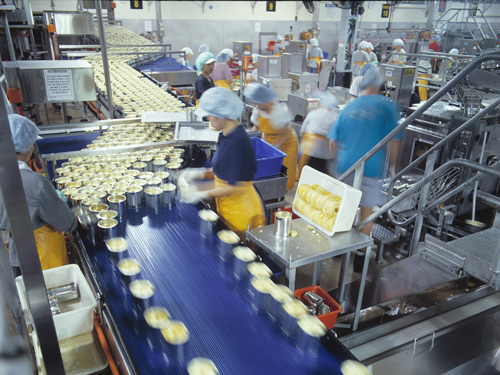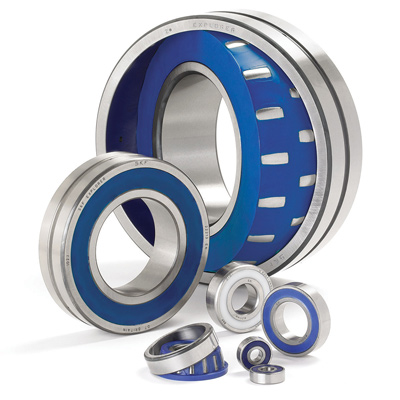Taking The contamination out of lubrication: Lubricant safety for the Food and Beverage industry

Lubrication is a major challenge within the food and beverage industry. Frequent high-pressure washdowns mean that lubrication is often washed out of the bearings and re-lubrication is required on a regular basis. Lubrication is at risk of leaking out of the bearing and contaminating food. Dramatic changes in temperature mean that lubricant degrades quickly. This doesn’t have to be the case.
There are three main ways of preventing contamination by lubrication in the food & drink industry. Firstly, it is important to use food-grade grease, to minimise the effect of any contamination that might occur. Secondly, components should be effectively sealed, to reduce the chance of leakage occurring, and to prevent water from being able to enter the bearing. Thirdly, it may be possible to remove lubricant from the component completely.
Food-grade grease may seem like a simple solution, but the frequent washdowns associated with the industry mean that the lubricant is being constantly washed away, and re-lubrication intervals need to be extremely frequent in order to keep the bearing running efficiently.
 One solution is to use SKF Solid Oil bearings with NSF approved oil, which are designed to be re-lubrication free. Solid oil is a polymer matrix which fills all empty space within the bearings and cannot be washed out during washdowns. It is resistant to the majority of chemicals used during washdowns, as well as virtually eliminating the risk of lubricant leakage. The bearing service life is increased dramatically, as well as reducing maintenance costs and the need for re-lubrication.
One solution is to use SKF Solid Oil bearings with NSF approved oil, which are designed to be re-lubrication free. Solid oil is a polymer matrix which fills all empty space within the bearings and cannot be washed out during washdowns. It is resistant to the majority of chemicals used during washdowns, as well as virtually eliminating the risk of lubricant leakage. The bearing service life is increased dramatically, as well as reducing maintenance costs and the need for re-lubrication.
Contamination is always going to be a huge challenge in the food and beverage industry, but taking control of lubrication can help to reduce the risk of contamination and maintain the high standards of hygiene required in the industry.
